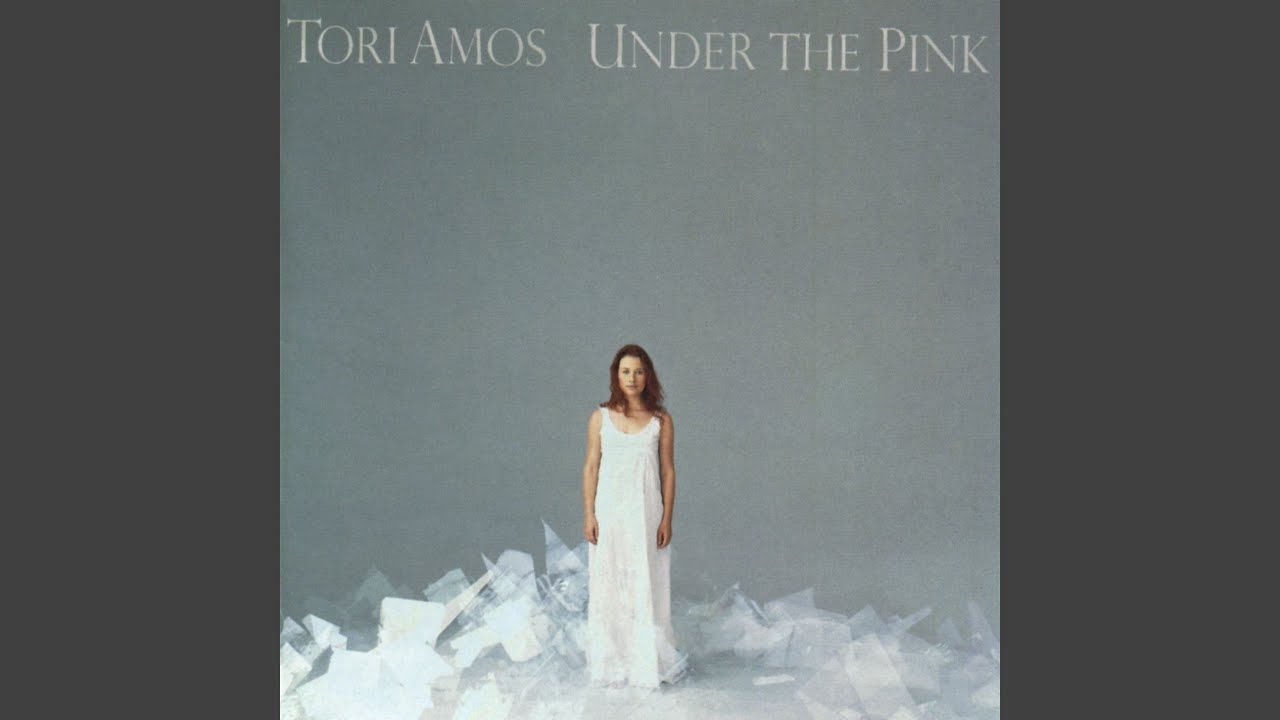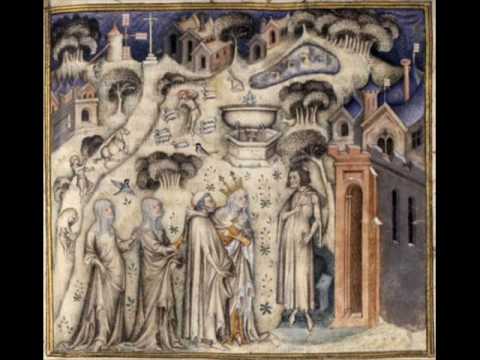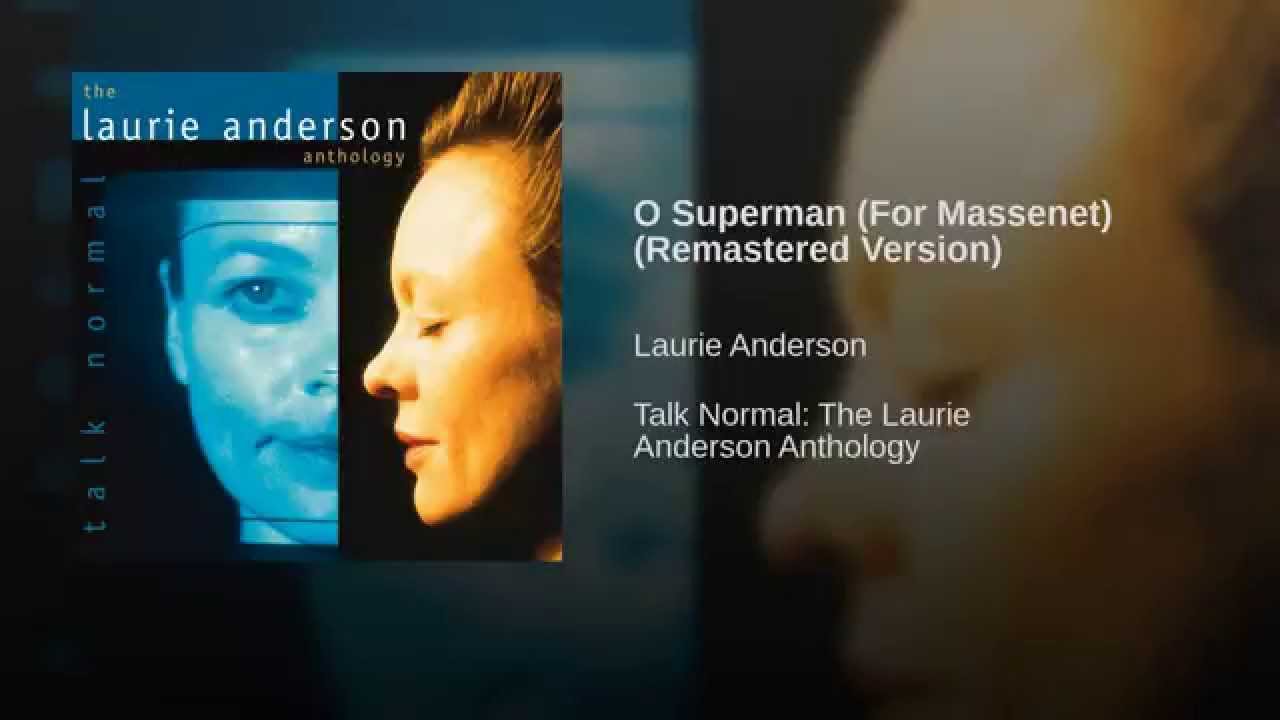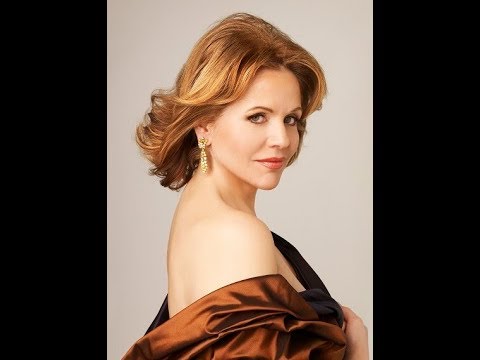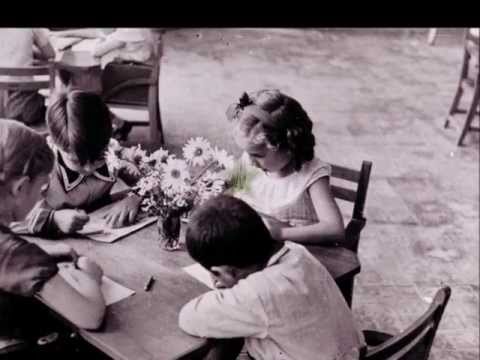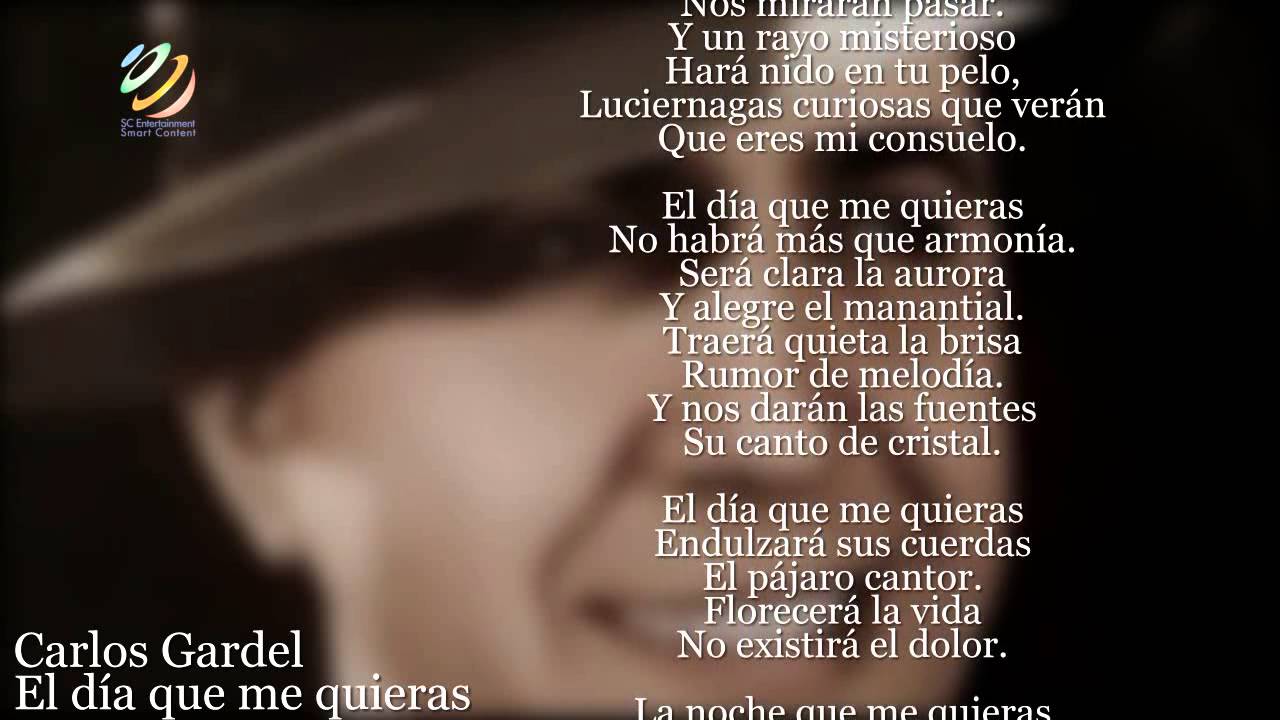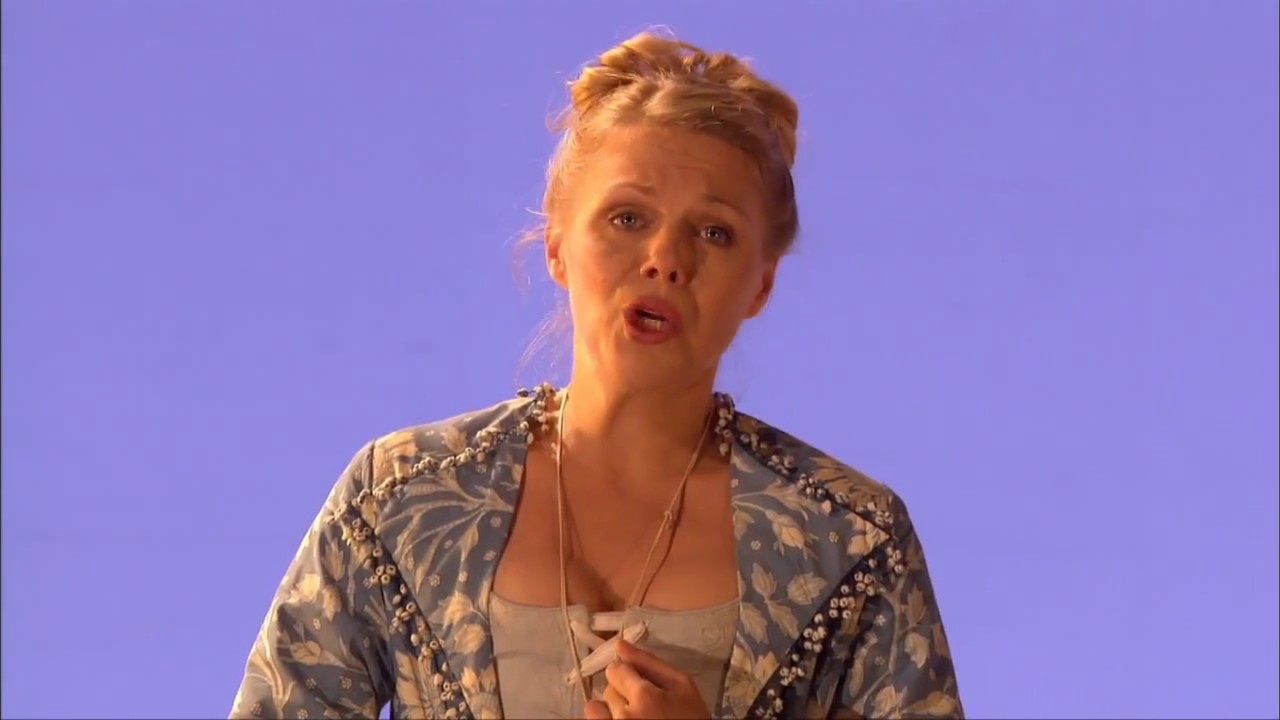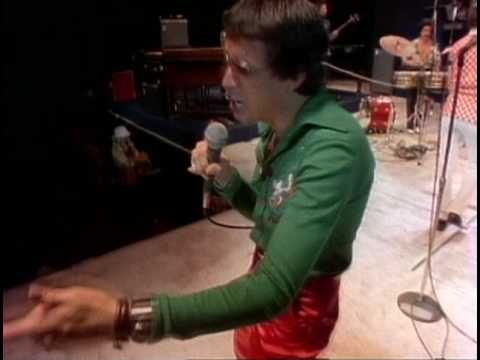Brad Garton: April Daffodils
Daffodils, again–bookending the week with everybody’s favorite perennial! This song was a persistent backdrop to my first few months in NYC. Everything in it combines to powerfully suggest the things we can’t communicate: the insistent waves of static harmony, the elusive but urgent text by Pablo Medina (which is here), and the voice, trailing aural phosphenes and finally ebbing away altogether like the impression of light after you close your eyes.
Tori Amos: Yes Anastasia
Tori Amos is a truly captivating performer. Example: I made the mistake of keeping the youtube track running as I was coming up with this intro and quickly forgot how to form words in my brain and type them, as her voice overrode my mental circuits. Amos runs the vocal gamut in Yes Anastasia, which is also quite a compositional feat, positively Schubertian in the cyclical nature of its material.
Guillaume de Machaut: Doulz Viaire Gracieus
Many works by the famed medieval poet-composer Guillaume de Machaut are formes fixes: complex musico-poetic structures requiring skill and finesse to create. This is an example of one such form, a rondeau. I
Laurie Anderson: O Superman
What is it about vocoders? They add a distance to the human voice that, in the skilled hands of Laurie Anderson, renders it omnipotent, supernatural.
Earl Kim: “thither” from Now and Then
The underrated Earl Kim’s setting of Samuel Beckett’s “thither” occurs twice in Now and Then, Kim’s 1981 song cycle for soprano, flute, viola, and harp. At just over 30 seconds, “thither” the song is a haunting shiver, a ghost aria, unforgettable even without the reprise.
Maurice Ravel: Asie
When I think of of exquisite writing for the voice and absolute masterful orchestration, I always think of this piece. For me this is the way to write for voice and orchestra. Absolute care about the registers, and the way Ravel keeps the balances has not been surpassed. On top of that, the gorgeous melodies and harmonies…
Joan Baez: Where have all the flowers gone
For my generation the memory of the Viet Nam War is not just a matter of history; the Viet Nam war is still vivid in our minds. As a young man I remember the horrors of this conflict, one that nobody really comprehended, yet millions had to go and fight not knowing if they would come back safe. Many did not, and others came back with problems and memories that would haunt them forever.
Carlos Gardel: El día que me quieras
The inimitable Carlos Gardel was known throughout the world as the leading tango singer during the 1930’s. “El día que me quieras” (“The day you will love me”) is not a tango, but since its debut in 1935 this Latin American jewel became inseparable to the voice and the romantic image of Gardel.
W. A. Mozart: Soave sia il vento
No other moment in music comes as close to the ideal of perfection as this trio. The undulating string sounds suggest the soft undulating waves that takes us into the imaginary journey of this delightful farce. The combination of the vocal lines with the different harmonizations is what makes this music so striking. Particularly moving are the last statements of “ai nostri desir”, where on the word “desir” (desire) a dissonant chord of utmost beauty conveys a sense of longing and profound nostalgia. “May the elements respond kindly to our desires” said perhaps with tears in our eyes.
NYFOS@Juilliard: The Performance
After all that work and all my crazy anxiety, I am happy to report that the show went quite brilliantly on Thursday. The place was packed. The cast was on fire—seven vibrant personalities, set free in a way you don’t always see at my school. Mary Birnbaum’s staging (even the parts that had worried me) worked like a charm. And the song lyrics seemed to be clear—when I looked out into the house I saw that the audience did not have their heads buried in their programs. They were getting what they needed from the stage.
Fania All Stars/Hector Lavoe: Mi Gente
These are the sounds of salsa that I remember growing up in Puerto Rico, and these are the same sounds of Latin Music that could be heard in New York during the 1970’s! The amazing musicianship, timing, rhythm and impeccable musicianship are just masterful. Particularly moving for me is to see this group of Latinos in Zaire (now known as the Democratic Republic of the Congo) bringing Salsa back to its musical roots.
NYFOS@Juilliard: Day 9
Dress rehearsal. This is usually when I have my worst day at the piano, when every ounce of grace and fluidity is replaced by gristly tendons and a rotating display of tiny memory slips. Imagine a light case of arthritis accompanied by a series of mini-strokes—that is how I experience it. Apparently it felt worse than it actually was today. I apologized to some of the cast members at the break and they said, “What? You’re sorry…? We didn’t hear anything go wrong. You sound perfectly fine.”
NYFOS@Juilliard: Days 7 and 8
We had our first day in the hall today. This move is less disconcerting these days than it was when we started NYFOS@Juilliard in 2006. Going from a small room—in those days, my apartment—to the 1000-seat Peter J. Sharp Theater used to feel like a Great Disappearing Act, a kind of “Hey dude, whadja do with my SHOW?” Everything that had been vivid suddenly seemed tiny, everything that had been colorful suddenly seemed pallid in the larger space.
Kurt Weill’s Berlin
Choosing a program for NYFOS’s annual residency at Juilliard is usually one of the year’s sweetest dilemmas. No dilemma this time, though. I knew more than a year ago that I would want to revive Kurt Weill’s Berlin as the 2019 project. My singers have strong feelings about today’s politics, and I was sure they’d see the connection between Weimar Berlin and contemporary New York. While Kurt Weill and Hanns Eisler are not unknown to today’s crop of young artists, they still had a lot to discover about them. And I knew that they would enjoy the freewheeling sexual politics in the songs by Tucholsky and Hollander.
NYFOS@Juilliard: Day 6
Last Tuesday I was ready to rehearse Kurt Weill’s Berlin, and I am now ready to play the show on Thursday. But I was not ready for how deep it was going to cut. My soul has gotten a workout this week, in a wonderful way. I guess it all began with my gradual awareness of just how significant the songs were.


